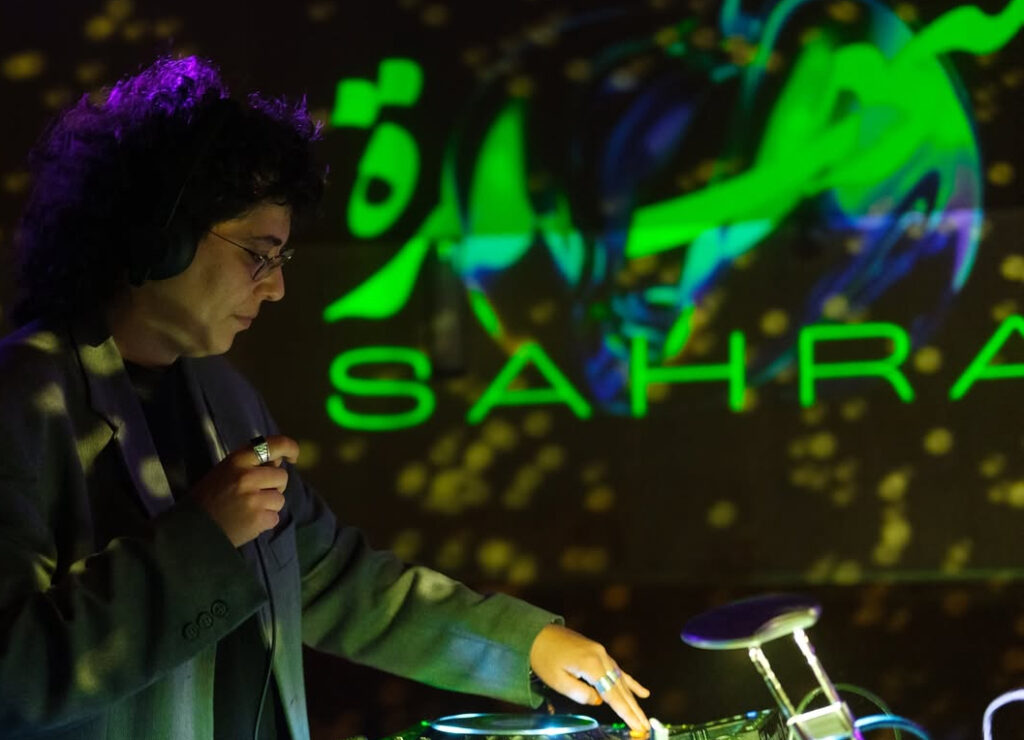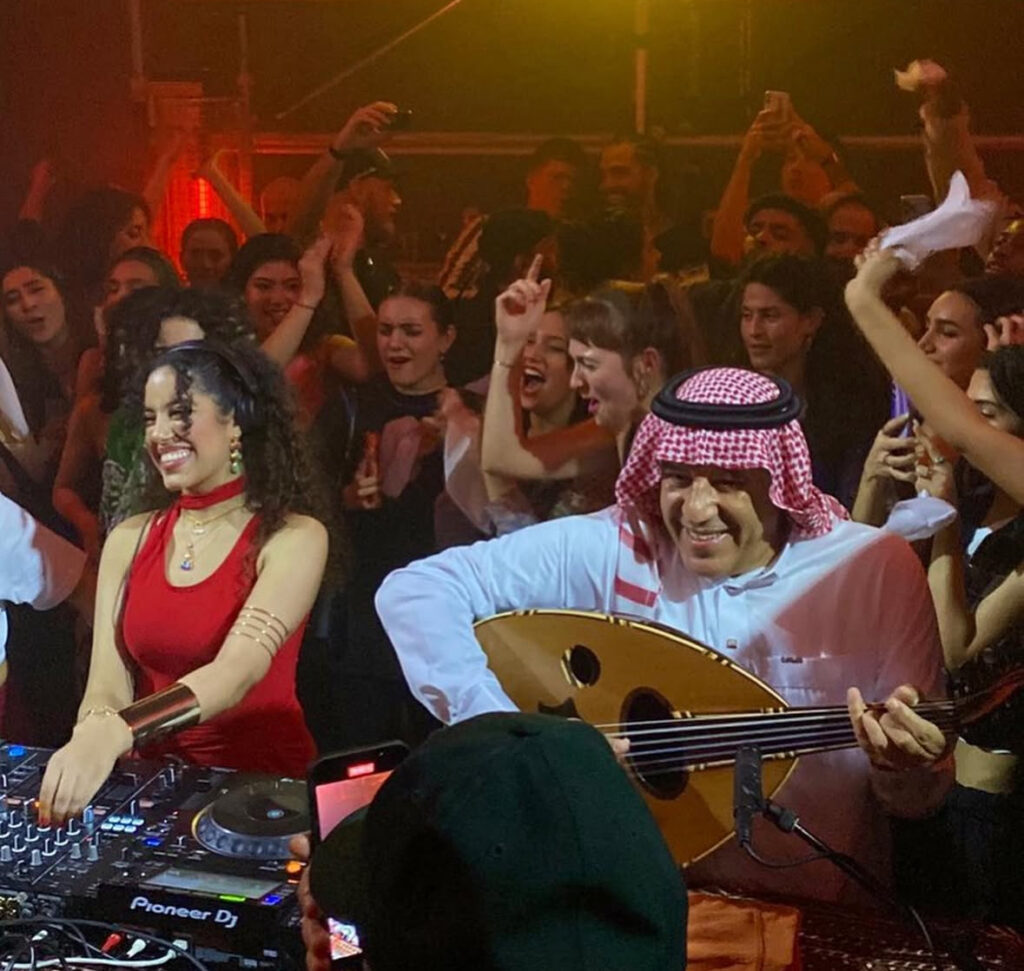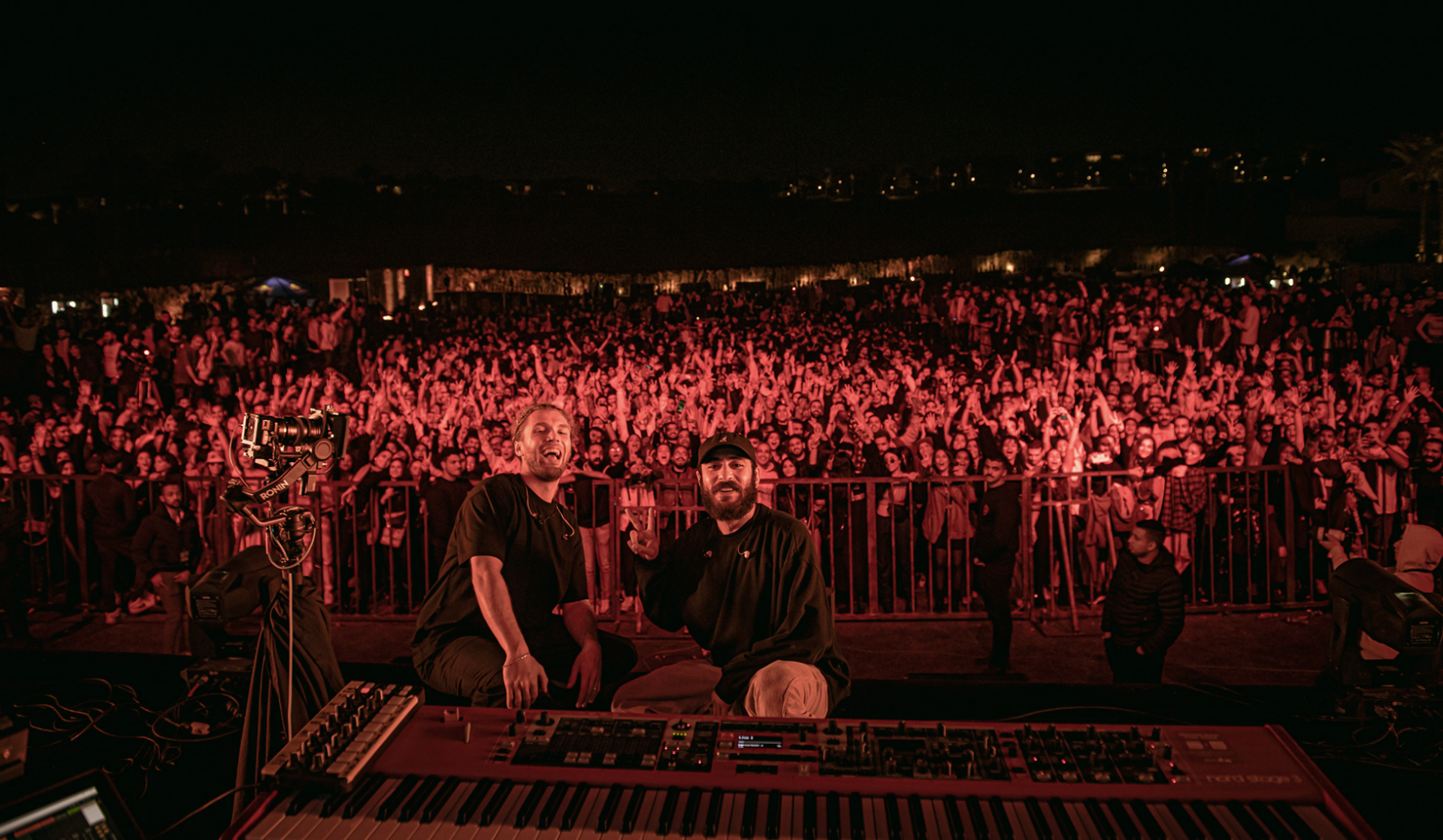When you hear Ameen Khayer’s powerful, bellowing yet tender voice, it’s hard to imagine that he just happened upon a career in music. In fact, he had no idea that he had any musical talent at all before he met his current bandmate, Thorben Diekmann. After an impromptu jam session one evening in their shared apartment, Diekmann heard Khayer sing for the first time and convinced him to try making some music together. The two would go on to start the band Shkoon, which would propel them to international success, selling out concerts from Berlin to Beirut.
Their project embodies the meeting of two very different musical worlds, an alignment of spirit despite differing cultural backgrounds. This became their overarching message with the May 1 release of the band’s latest EP, “Greater Than One.”
Although something incredibly positive came out of it, the story behind that fateful first night is not one of happy memories or the joys of youthful exploration. The reason that Khayer and Diekmann ended up in a shared apartment in Hamburg in the first place is because of global turmoil.
Diekmann was a German citizen who was involved in activism and organizations that supported refugees and immigrants arriving in Germany, at a time of rising racism and anti-immigrant sentiment in the country. Khayer was a Syrian refugee who had escaped the brutality of Bashar al-Assad’s regime.
He had been a politically engaged student from Deir ez-Zor, studying marine engineering and hoping for a better future than the one that awaited him under authoritarian rule. But in 2015, he was arrested and imprisoned for 34 days.
That year, he fled to Turkey and then onward to Germany. This journey involved traveling by rubber boat with 40 others, and then walking or driving with large groups of other Syrians who were also fleeing. This was the year that an estimated 890,000 refugees arrived in Germany, a large proportion of them from Syria. When he arrived in Hamburg, he stayed in an exhibition hall with thousands of other people. Later, he was moved to a camp made of metal shipping containers. It was there that he met one of Diekmann’s flatmates, who was volunteering and offered him a place to stay. And then came the music.
Making music offered the respite that Khayer needed. While he had never so much as thought of it before, he took to it quickly and naturally. Diekmann, a classically trained musician, was taken aback by Khayer’s “feeling for music,” he said in an interview with the “Yalla! Let’s Talk” podcast. “What I heard there was pure passion … and life. Back then, he didn’t know anything about music theory and production, so he was free.”
Diekmann had vowed to make music only as a solo artist, but he was drawn to Khayer because of this freedom. He wasn’t bound by all the rules and frameworks that Diekmann had spent his life learning, yet he was emanating music from within. Over the years, Khayer would get into production and learn theory, but it’s clear that he has an innate musical spirit, a factor that perhaps makes Shkoon so uniquely transcendent. It was not only a meeting of two cultural worlds, but also of two very different musical approaches. “It was amazing to experience and go on this journey. I brought him into the framework, and he got me out of it. And this is what we do until today,” Diekmann said.
Since they hadn’t planned to make music together seriously, they had no name when they started performing. They settled on the name “Shkoon” because it was the word they kept hearing over and over again. “Shkoon,” in the Arabic dialect of the region where Khayer lived in Syria, means “what,” and it was also one of the first Arabic words he taught Diekmann. After their performances, people always asked, “What does that mean?” along with a lot of other “what” questions. Their sound was something that many of their listeners had never heard before.
In their early music, Shkoon made electronic beats using traditional “mawwal” songs — an old form of sung poetry with drawn-out vowels that is slow, sentimental and associated with popular folklore. In fact, the first song that Khayer sang in front of Diekmann was a mawwal.
Many listeners were drawn to the sentimentality of these songs. For Arab youth in particular, it was even more moving and nostalgic, because many were known to them from their childhood. It was something they’d perhaps never expected to be dancing to in a club, let alone a techno club in Europe.
It was certainly a new take on these old classics, but also on electronic music, which, until recently, has tended to be quite monolithic and Eurocentric. This new musical experiment, which perhaps could be dubbed “Arab-electro,” has soared in popularity, much like Arabic music in general. From the smaller club stages to Coachella, more Arabic artists are appearing in dance music, both abroad and at home. But among diaspora communities, especially, there’s been an increase in events that bring Arabic music fans together as part of the club scene, through parties and events like Berlin’s “Sahra,” “Habibi Love” in Paris, “Middle of Nowhere” in London (and beyond), and “Laylit” in New York (and across North America).




Clockwise from top left: “Sahra” in Berlin, “Habibi Love” in Paris, “Middle of Nowhere” in London and “Laylit” in New York. (Screenshots taken from Instagram)
The events point to growing demand for spaces in which Arab youth can dance and express themselves through music. While these venues have always existed, they’ve become even more necessary in the last couple of years. In parts of Europe and North America, many Arab youth are feeling a sense of alienation that has been exacerbated by growing political tensions and censorship, especially around the topic of Palestine.
While activism around issues and crises affecting the Middle East and North Africa has grown, these activists often face targeted punishment, particularly those who express solidarity with Palestinians, and especially in Shkoon’s birthplace, Germany. From canceled art exhibitions and plays to arrests for simply wearing a keffiyeh, Germany has become a hot spot for crackdowns on pro-Palestine expression. People sympathetic to the cause have felt even more distress as a consequence.
While it’s not the obvious first place to go in times of grief, the club can be a place of refuge, somewhere you can let it all go, especially when you are in communion with others who feel a shared sense of pain. The music becomes a sort of communal therapy, a sonic balm that soothes you and permeates the deepest parts of your soul. While Shkoon may not have explicitly set out to create these therapeutic spaces for people, such is the experience of listening to their music.
Khayer has spoken about how music helps him connect with the parts of home that he can’t access while living in exile. In a sense, that’s why he and Diekmann began their musical journey by using old Syrian folkloric songs. The words and tunes helped him connect with the people and place that he lost through displacement. Over time, the band’s sound has evolved into its distinctive songwriting, with lyrics that enable Khayer and Diekmann to fully express their musicianship.
Khayer’s refugee status means that he’s not able to travel to certain countries outside the European Union. Each country has its own approach to issuing visas for refugees, and while the duo has been able to perform in Egypt, Lebanon, Dubai and Canada, only Diekmann could travel to the United States or Turkey, forcing him to choose between performing without Khayer or canceling a prospective show altogether. “As a refugee in Europe I’m limited with my actions, and limited with what I want to do. So music is the only platform that lets me at least speak freely and express myself more with freedom,” Khayer said in an interview with The National newspaper.
Now, as major changes are occurring in Syria, there’s a renewed sense of hope, albeit a cautious and uncertain one. While Khayer’s dream is to perform in Syria one day, he’s not sure whether to try to return or not. Speaking with InfoMigrants, an online media outlet focused on migration issues, Khayer said: “I was happy the dictator [Bashar al-Assad] left, because people can finally breathe. I cannot judge the new situation but I have doubts. I don’t have a clear view because I don’t live there anymore. I would love to go back, see my mother, and see my father’s grave — I never got to bury him.”
Khayer’s perspective is aptly captured in “Jadal,” the band’s new single and the first song on “Greater Than One.” The song’s lyrics, translated to English from Arabic, convey the confusion and tension he feels: “Endless debate, lost in doubt. / Should I go or should I stay? / My heart, broken by sorrow. / And the cup has drowned me in its spell. / My family is gone, nowhere in sight. / I was torn between hope and despair. Someone bring me a word from their side.”
The words are sung in a rhythmic and powerful way, with colorful synths and a progression of piano and violins dancing across the punchy bass lines that drive the song. It creates an almost hypnotic effect, evoking a deep melancholy yet managing to induce a sense of euphoria. It sets the tone for an EP that’s a balance of grief, uncertainty, love and resilience.
“Jadal” is followed by “Souf,” a more muted song that is inspired by Sufi chanting. Shkoon describes it as an exploration of the “quiet power of surrender.” In this case, the surrender is to the music. By losing ourselves in the melodies and beats, we can let our walls down and connect on a deeper level. A sense of vulnerability is encouraged even further in “Mili,” the third track. It’s a love song that radiates intimacy and calls us to be present in one another’s company, with lyrics like, “Place your hands in mine, let’s teach them the Chobi dance.” This refers to an ancient Syrian and Iraqi group dance tradition that expresses friendship and a collective spirit.
The final song on the EP leaves us resolute, with a powerful reimagining of the Syrian revolution song “Jannah,” by Abdel Baset al-Sarout. The band describes it as a “sonic reflection of hope, transformation and peace.”
While there is much uneasiness around what is happening in the world and whether there will be peace and prosperity in places like Khayer’s homeland Syria, in Sudan or in Palestine, the EP is meant to offer a place to connect and feel a shared strength in numbers — whether listening to it on the bus home or on the dance floor. On the day of the EP’s release, the duo wrote on Instagram: “Together the four tracks form more than an EP. They are a reflection of collective experience. In a world that often pulls us apart, Greater Than One is a reminder: when we reconnect with ourselves, we can reconnect with each other. And together, we are greater than one.”
“Spotlight” is a newsletter about underreported cultural trends and news from around the world, emailed to subscribers twice a week. Sign up here.



